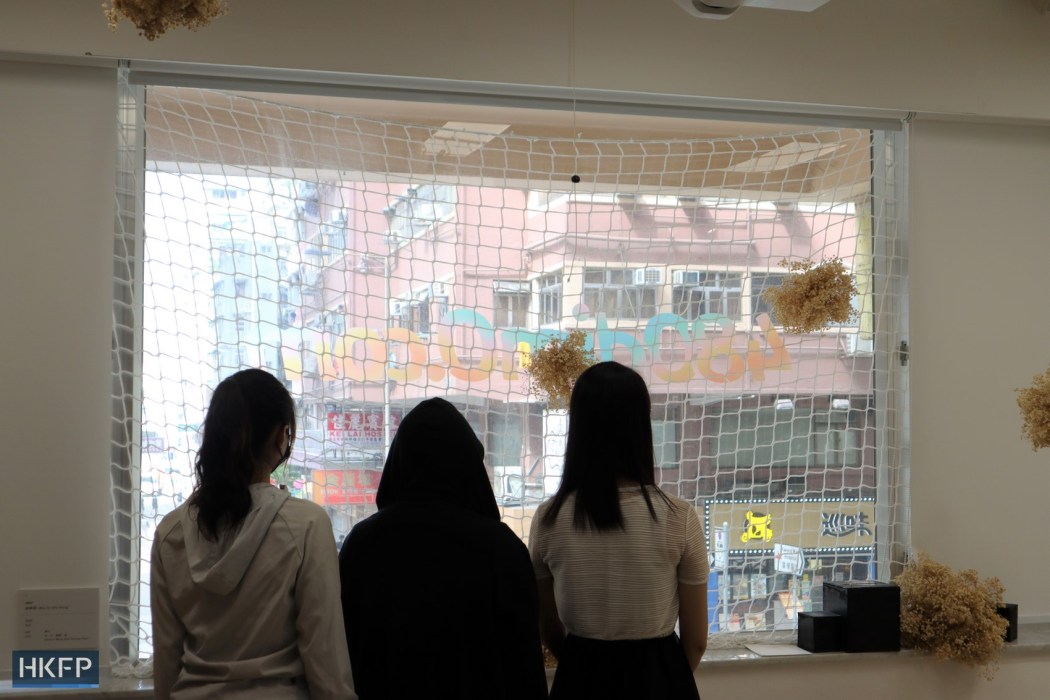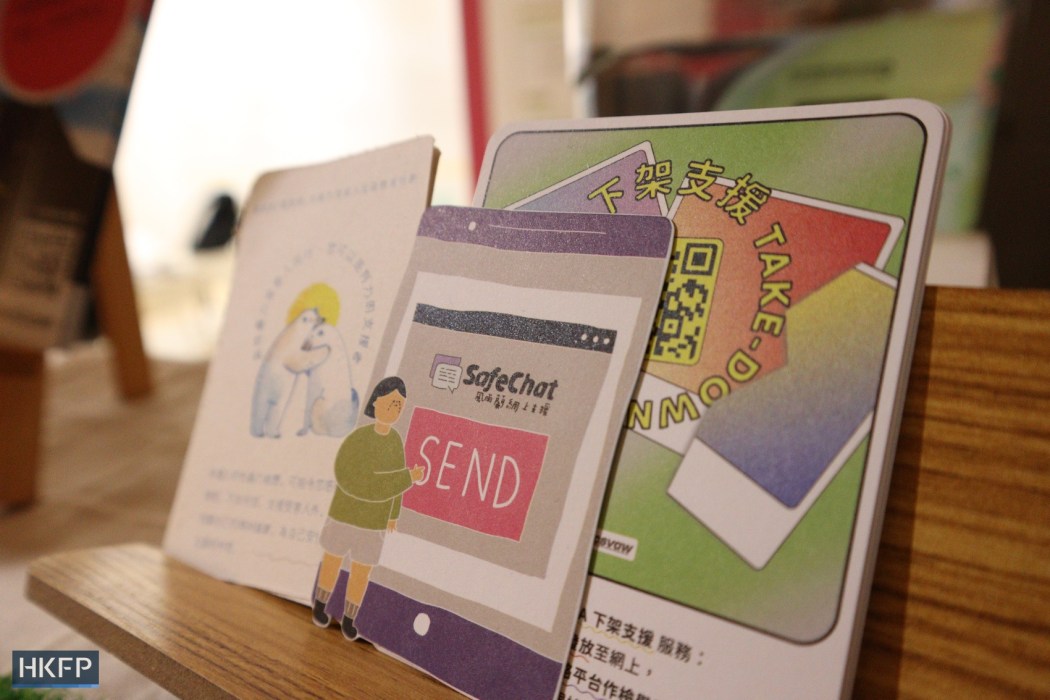As Hong Kong authorities plan legislation to make reporting suspected cases of child abuse compulsory, survivors of childhood sexual assault have voiced concerns that the well-intended move might create more trauma.

Under the proposed law, people who come into frequent contact with children under the age of 18 through their jobs will be legally obliged to report any suspected cases of child abuse to authorities.
A number of recent cases of child abuse in child care centres and schools across the city has renewed calls for the legislation, with the proposal largely supported by lawmakers and the public. But among survivors of such abuse, the planned inclusion of child sexual abuse set alarm bells ringing.
RainLily, a group that has provided support and counselling services for sexual abuse survivors for more than two decades, said it hoped to give voice to those who had experienced such abuse.
Among the 107 cases of underage sexual assault RainLily has assisted over the past three years, 40 per cent did not go to the police, according to a press release the group sent out last Thursday.
Last Saturday, RainLily invited four members of its childhood sexual abuse survivor group to sit down with reporters, to explain why they did not want to immediately go to the authorities, and share the scars left by legal proceedings they had not wanted to be a part of.
In the name of justice
Christina, speaking under a pseudonym, broke down when sharing her experience with reporters.
However, it was not because of the 11 years of sexual abuse that she lived through, rather, it was the additional layers of trauma introduced when her case was put through the criminal justice system.
Christina never imagined matters would spiral out of her control so quickly after confiding in a friend that she had been sexually assaulted by her brother. Her friend then told the social worker at their school.

Bound by the code of conduct, the social worker told the then 15-year-old that her case must be reported to her family as well as the police. “You cannot disagree,” Christina was told.
Before Christina could get her head around what was happening, she found herself in a video interview with officers.
During police questioning, she said she was asked whether her case was merely “a dispute between lovers.” When she failed to recall where the incidents occurred, she was asked if she had been lying, which made her very upset.
Making matters worse, as she was still underaged, her father watched live footage of the interview from an adjacent room. Christina had to testify about her sexual abuse at the hands of her sibling effectively in front of their own father.
Christina said she attempted to hide her embarrassment by laughing, but it only brought more unwanted comments from her father. “So in fact you are that happy after what happened,” she recalled him saying.
The impact of the abuse on her family after criminal proceedings began was worse for Christina than the abuse itself, she said.
“Because of this incident, if I were to experience other instances of abuse I would not tell anyone.”
‘I will not utter a word’
All four survivors of child sexual abuse agreed that bringing their abusers – their family members – to “justice” was the least of their concerns after the incident. Instead, they said they were most in need of a person who was willing to listen and support them emotionally.
That was exactly what Bella, also using a pseudonym, found in a teacher and social worker at her school. During Bella’s first meeting with the social worker, Bella immediately asked if her case would be made known to the school and her family. “If so I will not utter a word,” she told the social worker.

Bella said she was grateful that the social worker respected her choice and allowed enough time for her to be mentally prepared for her family’s reactions before revealing the truth to them.
But offering that buffer will no longer be legal under the proposed legislation.
“If I knew they were going to face [legal] consequences, I would never have told them,” Bella said. “I might have endured [the abuse] until I turned 18, when I could move away.”
While other forms of child abuse might leave physical marks on the body, the same cannot be said for most sexual abuse cases. As a result, survivors are often the only ones who can say what happened to them.
By the age of 15 or 16, survivors are often able to identify whether the abuse they have endured is of a sexual nature. The proposed law applies to under 18s, meaning that if a survivor were to wait for two or three years to speak to someone about their abuse, the mandatory reporting would no longer apply.
Given the choice between reporting their case to the police or living with the abuse for few more years, all four survivors told HKFP they would choose the latter.
‘Not a fair trade’
Swiftly bringing an offender to justice might be a popular demand, but for survivors of child sexual abuse it might not always end in a desirable outcome.
After going through lengthy legal proceedings, Christina’s abuser was sentenced to a community service order after he pleaded guilty to his charge.

The offender once taunted his victim, “After I go to the [probation officer], I can still enjoy my breakfast at Café de Coral,” he said during a phone call.
“I was furious,” Christina said, “I think it is not a fair trade.”
“I cannot understand, after suffering all these taxing procedures, in the end the judicial proceedings did not make the whole thing seen fairer. Why then did I need to endure that in the first place?” she asked.
Another survivor, who gave her name as Ann, said a social worker reported her case to authorities after she was found to have been sexually and physically abused by a family member.
It left her family in tatters. Her mother experienced emotional breakdowns and begged Ann and others not to sue the abuser.
When Ann’s offender returned home after being put away in isolation, normal family life resumed for a brief period. But Ann said the offender never learnt his lesson and started to harass her again once she turned 20.
Legal action meant little to the survivors HKFP spoke to.
“You wouldn’t hand [the offender] a life sentence, would you?” said one, who gave her name as Kim. “He could continue [the abuse] after being released anyways.”
Kim was sexually assaulted by a family member from the age of seven until she was almost 18. However, she did not speak about her abuse until she was in her second year at university as she did not want her family to lose its only source of income.
She did not agree with the narrative that a victim of child sexual abuse should stand up and bring the offender to justice, either.

“It is not the victim’s responsibility. It should not be my responsibility to stop my abuser from assaulting another person.”
“Sexual abuse is an act committed without my consent, but in fact the series of proceedings after reporting to the police would have been forced upon me without my consent either,” Kim said.
Give them a choice
RainLily said it worried that more young victims of sexual abuse would refrain from reaching out for help once the new law is passed, knowing that their case would be transferred to the authorities after speaking with a teacher, social worker or a counsellor.
The group therefore urged the government to lower the threshold in the proposed legislation from under the age of 18 to 16, and preserve the rights for young people between 14 and 16 to execute “informed decisions.”
If survivors aged 14 or over requested to keep their case secret, RainLily said it hoped their counsellors or teachers would be exempted from legal consequences for simply respecting the survivors’ will.
Support HKFP | Policies & Ethics | Error/typo? | Contact Us | Newsletter | Transparency & Annual Report | Apps
Help safeguard press freedom & keep HKFP free for all readers by supporting our team

LATEST FROM HKFP
HKFP has an impartial stance, transparent funding, and balanced coverage guided by an Ethics Code and Corrections Policy.
Support press freedom & help us surpass 1,000 monthly Patrons: 100% independent, governed by an ethics code & not-for-profit.










